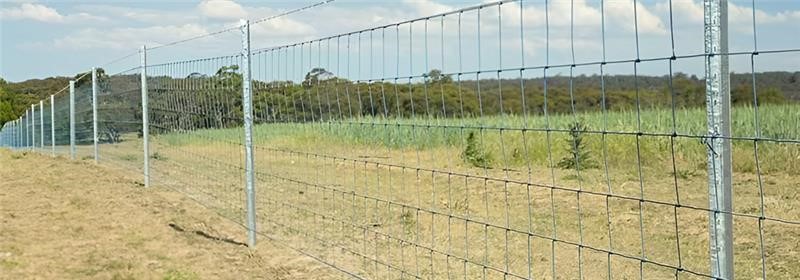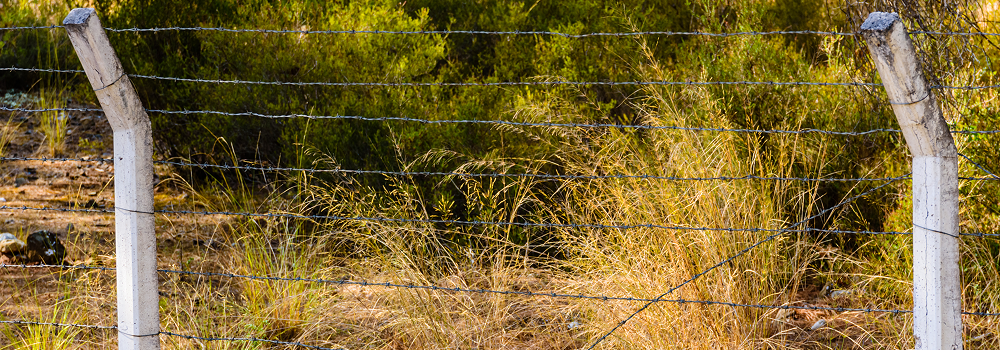Fencing for Agricultural Land: Everything You Need to Know Before You Build
Ever stayed up late worrying about cattle wandering into your field? Or felt that sinking feeling when someone quietly shifts your boundary line?
You’re not the only one. A lot of landowners go through this. That’s why it just makes sense to put up good, solid fencing for agricultural land before you plant a single seed or bring in animals.
It’s not just about marking land. Fencing protects your crops, keeps animals safe, and helps avoid fights or theft. It just gives you a bit of peace, knowing your land’s sorted.
At PeriFence, we get it. You’ve worked hard for your land. So we’ll help you figure out the right kind of fencing for agricultural land from the start.
Why Is Fencing So Important for Agricultural Land?
Agricultural land is more than just soil and crops — it’s your livelihood. A fence acts as the first layer of protection against common risks like trespassing, animal intrusion, and disputes. When planned well, it can save you from costly losses.
- Fencing helps stop trespassers and avoid disputes over land boundaries.
- It keeps stray animals out and protects your crops from damage.
- A good fence makes it easier to manage livestock safely.
- It can increase the value of your property.
- It also improves the overall look and organisation of your farm.
Think of it this way — a fence isn’t just protection. It’s a statement that your land matters.

Types of Fencing for Agricultural Land in India
Choosing the right type of fencing is key. Your decision depends on what you grow, how big your land is, and how much you want to spend. Here are some common options:
1. Barbed Wire Fencing
Barbed Wire Fencing is a traditional and cost-effective fencing option. It consists of twisted wires with sharp barbs placed at regular intervals to deter animals and intruders.
- Pros: Affordable, easy to set up, available everywhere
- Cons: Can injure animals, doesn’t last long in harsh weather
2. Chain Link Fencing
Chain Link fencing is made from a woven mesh of steel wires arranged in a diamond pattern. It is commonly used around small farms and residential properties because it offers visibility while still being secure.
- Pros: Strong, safe for animals, neat appearance
- Cons: Needs strong posts, a bit more expensive
3. Electric Fencing
Electric Fencing is a type of fencing uses wires that carry low-voltage electric pulses. These pulses deliver a mild shock to animals or people who touch it, effectively discouraging entry without causing harm.
- Pros: Great for keeping animals and people out, low upkeep
- Cons: Needs power, not ideal in remote or power-cut areas
4. Welded Mesh Fencing
Welded mesh fencing is made by joining steel wires at intersections to form sturdy, fixed panels. This type of fencing is especially useful for poultry farms or small livestock due to its strength and safety.
- Pros: Very strong, safe for animals, ideal for poultry and goats
- Cons: Higher upfront cost, needs expert installation
5. Concrete or Stone Wall Fencing
These fences are built using concrete blocks or stones and form solid, immovable barriers. They are ideal for long-term protection and add a permanent sense of security to the land.
- Pros: Extremely secure and long-lasting
- Cons: Very expensive, time-consuming to build

How to Choose the Best Fencing for Agricultural Land
Selecting the appropriate fencing for agricultural land requires careful consideration, as each piece of land has unique characteristics. It is important to assess your specific requirements before making a decision. Consider the following:
- What is the primary purpose of the fence? Is it to safeguard crops, manage livestock, or serve both functions?
- What is the size of your land? Larger areas may require durable or budget-conscious options.
- What is your budget? Account for both installation and ongoing maintenance costs.
- What are the local environmental conditions? Factors such as rainfall, humidity, and soil stability can affect the type of fencing you need.
- Are there legal regulations or permits required? Checking with local authorities can help you avoid compliance issues.
By addressing these points in advance, you can make an informed choice and invest in a fencing solution that meets both your short-term and long-term needs.

Government Subsidies for Agriculture Land Fencing
Many Indian states provide financial assistance to farmers for installing fencing on agricultural land:
- Karnataka: Dairy farmers can apply under the Ksheera Bhagya scheme
- Maharashtra: Magel Tyala Shettale supports fencing along with water conservation
- Madhya Pradesh: 50% subsidy for solar-powered fencing
Visit your local agriculture office or gram panchayat to check what you’re eligible for.
Additionally, some central government schemes under the Ministry of Agriculture also provide partial reimbursements for fencing costs as part of broader agricultural infrastructure support programs.
Installation Tips You Shouldn’t Skip
Even the best fence won’t work if installed poorly. Keep these things in mind:
- Use RCC or metal posts — they last longer
- Pull the wires tight — it prevents sagging
- Plan for proper gates — don’t block access
- Leave space for future expansion
And always, always check your boundary measurements properly before you start.
Why Farmers Trust PeriFence
We’re not just here to sell you fencing. At PeriFence, we’re partners in protecting your land. Here’s what makes us different:
- We suggest fencing based on your exact land and needs
- Our team handles professional installation
- We use quality materials that last
- We help with custom plans and layouts
- We offer full support even after the job is done
Real farmers, real results. That’s what we stand by.
Conclusion
One stray animal is all it takes to ruin your harvest or damage your land. And if your boundaries aren’t clearly marked, you could end up in a land dispute that drags on for years.
Don’t wait for trouble to show up. The right fencing for agricultural land can protect your crops, livestock, and peace of mind. Barbed wire works well for big open areas. Chain link fencing gives you strength with visibility. GI wire is solid and lasts long, even in tough weather. You’ve got options.
At PeriFence, as trusted fencing contractors in Bangalore, we help you choose what’s best for your land, based on how you use it and what matters to you. Looking for reliable fencing in Bangalore? Give us a call or send a message. We’ll make sure your land is protected without the hassle.
